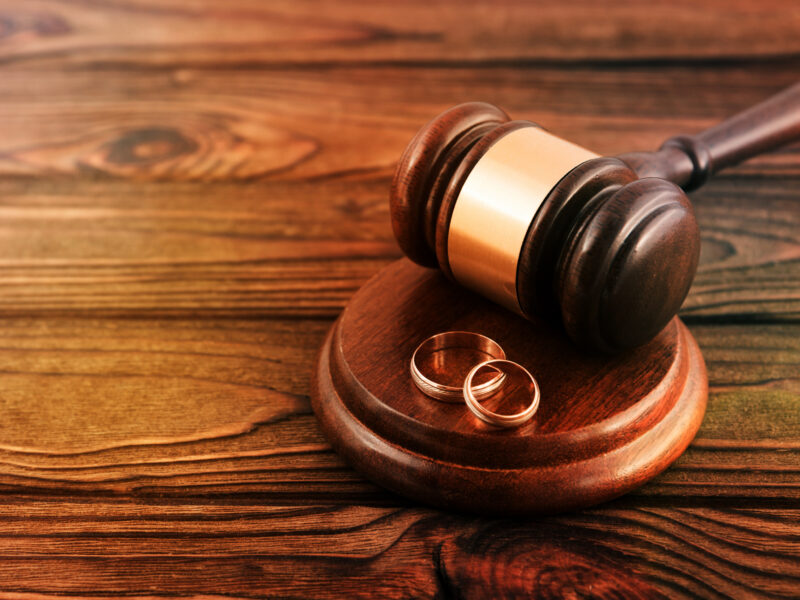


Alienation of Affection Lawyers in Raleigh and Surrounding Areas
Overview
At Smith Debnam, we empower divorcing couples to navigate Alienation of Affection laws with confidence.
At Smith Debnam Attorneys at Law, your premier source for comprehensive legal guidance and support in matters related to divorce and Alienation of Affection in North Carolina, we understand divorce can be a challenging and emotional journey, and we are here to provide you with the knowledge, know-how, and personalized attention you need during this difficult time. Our experienced attorneys are dedicated to helping divorcing couples navigate the complexities of Alienation of Affection laws, ensuring their rights are protected and their questions are answered.
What is Alienation of Affection?
Alienation of Affection, otherwise known as Criminal Conversation, is a unique legal concept recognized in North Carolina, allowing an individual to sue a third party who is responsible for the destruction of their marriage. In simple terms, it refers to a claim made by a spouse against a person who has interfered with the affection, love, and companionship that once existed in the marital relationship. Alienation of Affection cases typically involve a defendant who engaged in activities or behaviors that caused one spouse to lose affection for the other, leading to the breakdown of the marriage. Learn more about Common Law Marriage here.
How Can Smith Debnam Attorneys at Law Help?
At Smith Debnam Attorneys at Law, we have a team of seasoned divorce lawyers who specialize in handling Alienation of Affection cases in North Carolina. Our mission is to provide divorcing couples with the guidance, representation, and support they need to navigate this legal landscape successfully. Here’s how we can assist you:
- Advanced Experience: Our attorneys possess extensive knowledge of North Carolina divorce and family laws, including Alienation of Affection. We stay up to date with the latest legal developments to offer you accurate and effective advice.
- Personalized Guidance: We understand that every divorce case is unique, and we tailor our approach to meet your specific needs. Our compassionate attorneys will listen to your concerns, offer personalized advice, and develop a strategic plan to protect your interests.
- Negotiation and Mediation: In many cases, it is possible to reach a fair settlement through negotiation or mediation rather than going to trial. Our skilled negotiators will work diligently to achieve a favorable outcome that meets your objectives.
- Litigation Support: If litigation becomes necessary, our trial-ready attorneys will provide aggressive representation in court. We will advocate for your rights and fight for a fair resolution, keeping your best interests at the forefront.
- Extensive Network: Over the years, we have established a strong network of professionals, including forensic accountants, psychologists, and private investigators. We collaborate with these experts to gather evidence and build a compelling case on your behalf.
Common Frequently Asked Questions about Alienation of Affection Laws in North Carolina:
Yes, North Carolina recognizes Alienation of Affection as a valid claim. You can sue a third party who is responsible for the breakdown of your marriage due to their actions or behaviors.
To succeed in an Alienation of Affection claim, you must establish three key elements: 1) a genuine love and affection existed between you and your spouse; 2) the love and affection were destroyed; and 3) the defendant’s actions or conduct caused the alienation of affection.
Yes, infidelity is one of the common grounds
Here at Smith Debnam, we are proud to advocate for you and your family. To schedule a consultation with a Raleigh alienation of affection attorney at our firm, call 919.250.2000.
Frequently Asked Questions
It is in a married person’s best interests to hire an attorney for his or her case, one who is committed to not only educating him or her about rights and obligations but who is also there to serve as an advocate. A good attorney knows the law inside and out and stays current on updates that may affect the case and will establish a stable attorney-client relationship. A good attorney also knows important deadlines and the proper procedure for filing documents at the court. Many attorneys have good relationships with judges and other attorneys, who can often help an individual’s case.
Marital misconduct can be considered when determining the amount or duration of alimony or as a basis for a court-ordered separation.
It is not necessary to catch the third party and the cheating spouse in the act, but there must be evidence that the unfaithful wrongful act by the spouse was inclined toward a sexual relationship with that third party and that the spouse had the opportunity to engage in a sexual relationship with that third party. Email, social media posts, suspicious behavior, and statements from coworkers or friends can all be used as evidence of infidelity.
It may be appropriate for a person to pursue the third party with whom his or her spouse had an affair to gain compensation for damages caused by that third party. These damages can include loss of income, loss of companionship of the spouse, and in some cases, medical-related bills.
No, but the two actions are typically intertwined. Criminal conversation is specifically defined as sexual intercourse between a third party and a spouse during the marriage. The grieved spouse must prove that the third party knew about the marriage.
Alienation of affection is a legal action against a third party who has interfered with a marriage and caused one spouse to suffer a loss.
Extramarital affairs can be considered a form of marital misconduct, which may affect the amount or duration of alimony that a person pays or receives. Sometimes, when extramarital affairs are an issue, lawsuits for alienation of affection and criminal conversation can arise. An attorney can help evaluate whether these actions are appropriate for a specific situation.
Marital misconduct can include certain acts that occur during the marriage, such as infidelity, abandonment, cruel treatment, verbal or physical abuse, reckless spending or excessive use of drugs or alcohol, among other things.
Insights

Does Adultery Affect Child Custody? The Answers You Need.

What Can You Sue Your Ex-Spouse For?

The Heart of the Matter

Is my spouse cheating?














